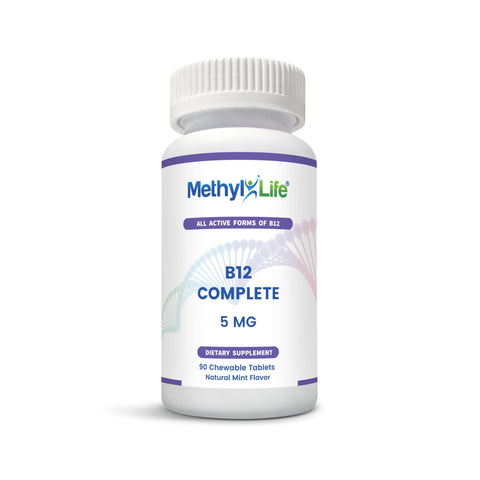Multivitamins for MTHFR
If you’ve heard about the MTHFR mutation—or discovered that you have the variant yourself—you may be wondering what to do next. What are the health risks of MTHFR? What can you do to protect yourself from these risks?
The MTHFR mutation is not uncommon1: an estimated 30-40 percent of the American population may have one of the well-known forms of this mutation, including 10%-15% of the Caucasian population and more than 25% of the Latino population. Most people don’t discover they have the mutation until they experience symptoms caused by deficiencies associated with their variant, which is usually when they get a test.
One of the main questions people ask is, “Should I take multivitamins with MTHFR?” The answer is yes - but not just any old multivitamin off the shelf. There are hundreds of multivitamins out there these days, and they all vary enormously in terms of their quality, and the form of the nutrients they contain. Knowing which is right for you is crucial when it comes to managing an MTHFR polymorphism.
The tricky thing about MTHFR is that symptoms can vary between carriers and variants.
Every person with an MTHFR genetic mutation has different needs depending on their own health history, and also on the MTHFR variant they have. You need to understand what your own specific needs are, and what nutrients you might be deficient in.
There’s a lot of misinformation about MTHFR mutations and how they can be managed. This article will explain what the MTHFR mutation can mean for your long-term health, and why you may need to supplement with certain vitamins. We’ll also explain how to choose a multivitamin that’s suitable for each particular variant of MTHFR.











